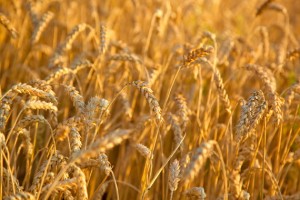 Everywhere you look—in the grocery store, on television, on the Internet—people are talking about gluten and gluten intolerance. We’ve also witnessed a surge in popularity of gluten-free diets and a myriad of competing claims of health benefits, or a lack thereof, when gluten is eliminated from our plates.
Everywhere you look—in the grocery store, on television, on the Internet—people are talking about gluten and gluten intolerance. We’ve also witnessed a surge in popularity of gluten-free diets and a myriad of competing claims of health benefits, or a lack thereof, when gluten is eliminated from our plates.
So, what is gluten? What purpose does it serve? Why has it become such a hot health topic? Here’s some information to keep in mind before you try going gluten-free:
What is gluten?
Gluten is a protein that’s naturally found in grains, such as wheat and barley. This protein is highly abundant in many foods that we regularly consume in Western diets. Some experts believe that gluten is detrimental to our health and that we shouldn’t be eating it.
But, gluten is not bad for our bodies, rather many foods that do contain gluten are quite nutritious. Foods that are high in fiber, such as quinoa, whole grain products, brown rice, and buckwheat, have plenty of nutrients, vitamins, and essential health benefits that nourish our bodies and keep them functioning properly.
Do we need gluten in our diets?
Gluten is such a common nutrient and component of foods that we eat, but we don’t actually need to consume it. However, that doesn’t mean that you should go completely gluten-free right this second!
Before you start throwing out your bread and rice, keep this in mind: if you’re consuming gluten on a daily basis right now, your body is used to having gluten in it. If you completely cut it off, your body may take some time to adjust to the new changes in your diet. You can try going gluten-free, but make sure you ease into it. Make sure you read all nutrition labels, too, as many companies are jumping on the gluten-free bandwagon and label their less nutritious foods as “gluten-free.” Just because a box of cookies or junk food says it’s “gluten-free” doesn’t mean you should eat it all the time.
What is Celiac disease?
Some people suffer from a medical condition called Celiac disease. This disease is caused by gluten intolerance in the digestive tract. The body negatively reacts to gluten when consumed and sparks a negative immune reaction. People that suffer from Celiac are medically prescribed a gluten-free diet.
Some people also suffer from gluten sensitivity, which means that they need to be cautious of the amount of gluten they’re consuming, but they often times don’t have to completely eliminate it from their diets. Many people with gluten sensitivity do try gluten-free diets, with great success.
So, what’s the verdict?
Gluten isn’t completely bad for our bodies. It’s true that we don’t need gluten in our diets. It’s also true that many people suffer from gluten intolerance and sensitivity due to these proteins. However, the majority of us will be just fine eating, or not eating, gluten.
Either way, the bottom line is this: consume gluten in moderation, just as you would anything else in your diet. Make sure you’re eating plenty of fruits, vegetables, lean proteins, and healthy fats, too. If you’re curious as to how a gluten-free diet will affect your body, then try one out! Get as many facts as you can, and listen to your body.
Have you tried a gluten-free diet? Do you suffer from Celiac? Share your stories below!






